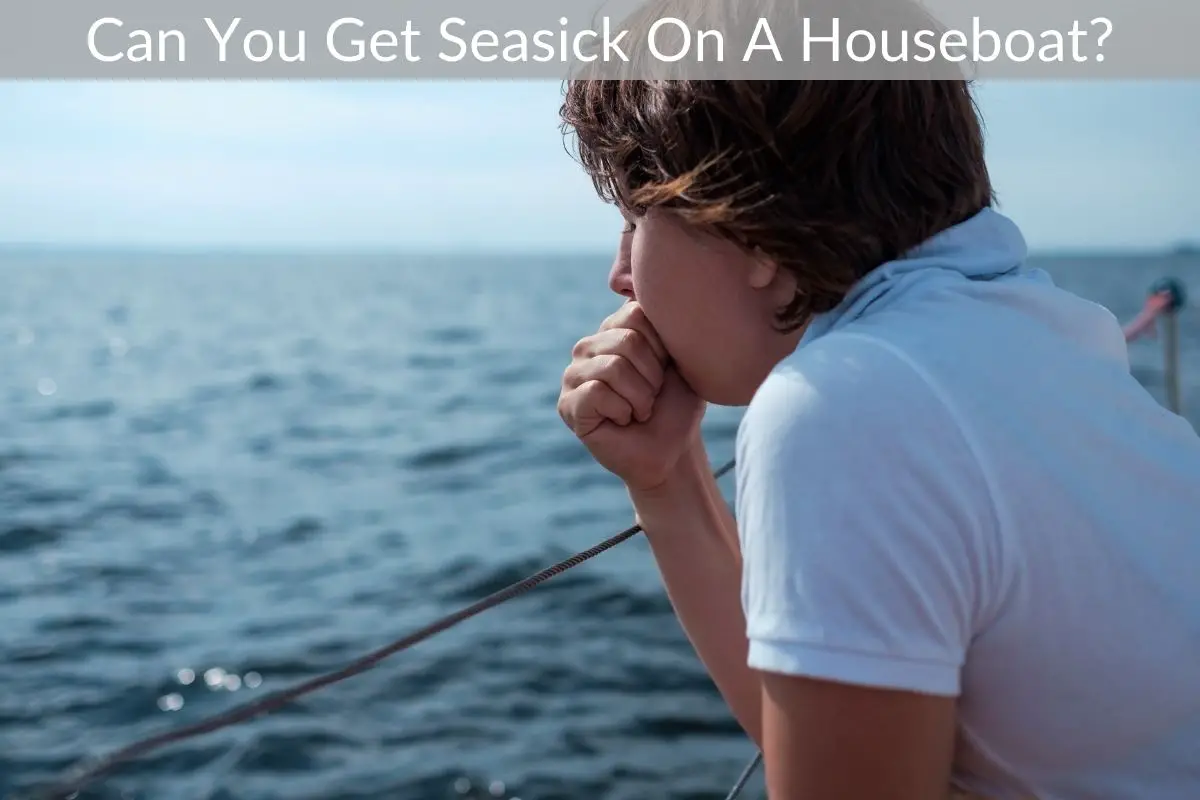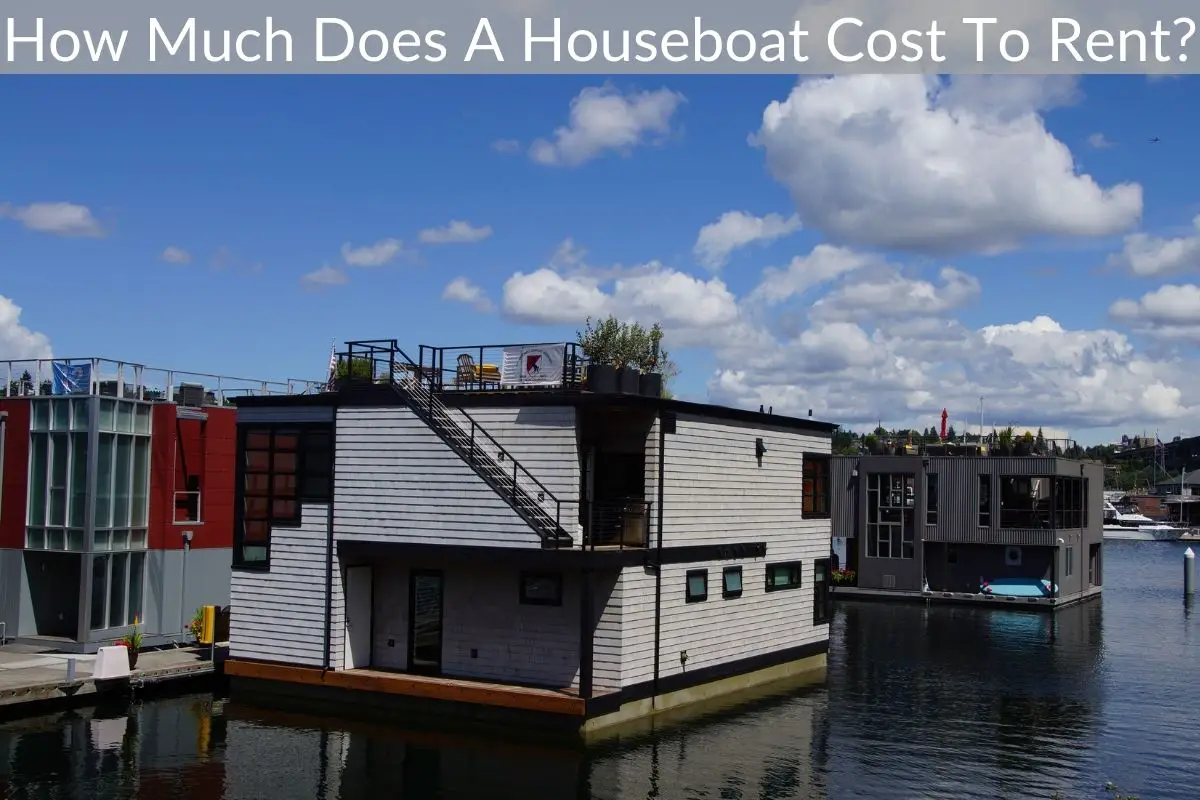If you are someone who loves houseboats and yet has sea sickness, knowing whether a houseboat rocks is a very important item that you will want answered before you decide on buying or renting a houseboat.
*This post may contain affiliate links. As an Amazon Associate we earn from qualifying purchases.
Houseboats do rock just like every other boat on the water will. However they do rock less than many boats and because of their openness to the air many people have reported being less seasick on a houseboat than on other boats.
How much houseboats rock does vary a decent amount from houseboat to houseboat depending on a variety of factors. We will go into more depth about what determines how much a houseboat rocks in the next section.
Factors that affect how much houseboats rock
In this section we will cover five separate factors that have a great deal to do with how much a houseboat will rock. When looking for a houseboat to buy or rent if you look at these factors you can determine if your boat is more likely to rock or not.
The build of the boat
Believe it or not, the build of the boat definitely has a lot to do with how much the houseboat rocks, the heavier the boat, the less it would rock. Hence if you are looking for a houseboat that remains more stable then you should look for larger and heavier houseboats. Not only are these boats more spacious and have better infrastructure, they also prevent the boat from rocking too much.
However, some people prefer that their house boats rock a little. It brings in the real feel of living on a houseboat and less like being in an apartment or house. If you are someone who likes their houseboat to rock a little, you could opt for a lighter houseboat.
Extra guards
If you want a more stable houseboat, then you could opt for a boat that comes with special guards and other protective systems that prevent the boat from rocking too much. This special equipment can also be installed externally with the help of a mechanic sometimes.
However, this is not a long-term solution and it is better that you purchase a houseboat that has been pre-installed with such protective equipment if you don’t want your houseboat to rock.
Where you dock or anchor
The place where you have anchored or docked your houseboat is also an important factor in deciding whether your boat rocks or not. If it is parked in areas like lakes and other inland water bodies where the water is calmer then the boat will not rock very much. However, if you anchor your houseboat somewhere in a large river where the water is less calm, then your boat will be susceptible to more rocking.
Kind of anchor
The strength and design of the anchor greatly determines how much your boat will rock. A boat with a strong anchor will make sure that the boat doesn’t rock too much. Nowadays, with various developments in the field of boating, many new varieties of anchors have been introduced.
An anchor is an integral part of your boating experience not only for keeping the boat stable but also for safety purposes. Make sure you carefully assess the quality of the anchor before you purchase one for your houseboat.
Weather
This is probably the largest factor when it comes to houseboats rocking. How much your houseboat rocks is greatly dependent on the weather of the place you live in or are using the boat in. If you live in a region with unpredictable weather, then it is better if you buy a boat that has been equipped with protective devices that prevent it from rocking too much.
These are just a few of the reasons why you might be experiencing rocking. Usually, no matter how much you try, you will always experience a small amount of rocking if you decide to live on a houseboat or rent one. The major reason why people fear buying houseboats is because continuous rocking makes them seasick. Sometimes, people may feel sea sick even if the boat doesn’t rock a lot.
If you are someone who gets sea sick a lot, we will discuss some quick tips to help you when y[u are on the water.
Tips to help with houseboat seasickness
If you easily get seasick then non matter if you are using a houseboat or virtually any other type of boat you are likely to experience some discomfort. To help you with that on a houseboat we have compiled a short list of things that you can try to help with your sickness while on board.
Station yourself on lower areas of the boat
If you ever feel seasick on a houseboat, try and station yourself on the lower areas of the boat. Since they are closer to the anchor, they will rock less and hence are good for people who experience a lot of sea sickness. For this it is normally best to stand outside on the lower deck rather than being on the upper one. Going in the bedroom area in the lower part of the boat can help but many people prefer to be able to see the water rather than being inside.
Avoid the higher areas of the boat as they are less stable and may increase your sea sickness.
Try to remain outside if you feel sick
One of the best ways to get rid of seasickness is to get some fresh air. Avoid staying inside your houseboat when you feel sea sick. Go out onto your deck and you will likely immediately end up feeling better.
This is especially true if the boat is moving or if there is a breeze as that air flowing over your face and skin can help you immensely.
Medication
if you feel that your sea sickness is serious and doesn’t seem to go away even after trying everything, it’s totally alright if you take some medication after discussing it with your general physician. It has been witnessed that usually these medicines are harmless and help a great deal with seasickness.
My children have issues with seasickness and even motion sickness in a car and we have used children’s Dramamine (found here) with great success. A lot of people have also reported great success with the MQ motion sickness patch (found here).
You bet the counter medications won’t work as well as something prescribed by a doctor but many people have reported over the counter meds working fine for them.
Carry cool beverages
Cool beverages are known to be a quick remedy for seasickness. Try to opt for natural alternatives like ginger ale however, in case of emergencies where you cannot fins any natural alternatives, a chilled Coca-Cola will often do the trick.
Tilt your head and close your eyes
Many people claim that this trick greatly helps them to counter sea sickness. When you start feeling seasickness tilt your head to the side slowly and close your eyes for a few minutes. If this works for you it should only take a few minutes for the nausea to go away.
Try and distract yourself
Some people are of the opinion that sea sickness is more of a psychological issue than a medical one. Try and distract yourself by doing something else on concentrating on a task.
One well known technique to avoid sea sickness is to try and take deep breaths and focus on your breathing for a few minutes.
These are all temporary measures and work very well if you are travelling on a houseboat temporarily. However, these measures can also be effective if you plan to permanently stay on a houseboat all the time.
Each of these individually or combined will help you deal with the seasickness now and with time, as you get used to the houseboat, slowly but surely your sea sickness will subside.
Whether or not houseboats rock
Those with seasickness may wonder whether houseboats rock, but they are actually less likely to do so than other boats. In fact, some vacationers and owners say they feel much less seasick on houseboats than on other types of boats. The reason is the openness of houseboats, which is partly due to the fresh air that floats around. A boat guard is a simple way to reduce the amount of rocking a houseboat experiences.
While houseboats do not rock as much as floating houses, this doesn’t mean they are completely free of movement. Some houseboats are even more resistant to boat wakes than others. Whether houseboats rock is a personal choice and depends on many factors. While you can purchase extra rocker stoppers or guards if you feel that your houseboat is too rocky, you shouldn’t rely on these measures as a long-term fix.
The best way to reduce the amount of rocking in your houseboat is to avoid it during turbulent weather. If possible, choose a houseboat in a marina where the waves are relatively calm. This will lessen the effect of windy conditions on houseboats. But, if you’re really worried about the rocking in your houseboat, you can opt for a larger houseboat or move to a different location.
Besides the quality of the anchor, a houseboat’s rocking behavior depends on the place where it is anchored. Those in calmer waters won’t rock nearly as much as houseboats that are pushed around. However, houseboats in more turbulent waters can still rock, so it’s important to take safety measures before you embark. If you do decide to take a houseboat trip, you’ll want to ensure that it is equipped with protective devices.
Locations where houseboats rock
There are several different factors that can affect the amount of rocking that a houseboat experiences. The location in which the houseboat is anchored has a lot to do with the amount of rocking. Houseboats that are anchored in calm water are unlikely to rock very much. The strength of the anchor can also play a factor in how much the boat rocks. With the advancements in boating, there are new types of anchors that can help reduce the amount of rocking that a houseboat experiences.
Houseboats in Sausalito, California, feature a contemporary vibe, with clean-lined furnishings and floor-to-ceiling windows. A spacious bedroom boasts hardwood floors, a Japanese-style soaking tub, and a 300-degree view of the Sausalito Bay. If you’re lucky enough to have a view like this from your houseboat, you’ll be rewarded with a spectacular sunset each evening.
Some homeowners choose to live on houseboats as a way to reduce their carbon footprint and enjoy the fresh air. The houseboat lifestyle can be a great way to get away from the hustle and bustle of the city. Many houseboat rentals include everything you need for cooking, relaxing, and sleeping on a houseboat. You won’t have to worry about squatting in a cramped cabin because dinettes on houseboats can easily be converted into beds. Alternatively, the common living area on a houseboat can be used for sleeping quarters.
Medications and beverages that can help with seasickness
There are several options for dealing with motion sickness during a houseboat cruise. Antihistamines are often recommended, and they can reduce the effects of nausea, dizziness, and headache. Antihistamines should be taken before embarkation at least one hour before the trip to help prevent seasickness. Drinking plenty of water on a houseboat cruise can also help, and many people find that ginger ale or crackers can counteract the effects of motion sickness.
While the cause of seasickness is not yet completely understood, the most common symptoms are nausea and swaying. When the body isn’t moving properly, the brain becomes confused and begins to react in an unbalanced manner. The body’s contralateral hemispheres control balance, so this imbalance confuses the brain’s information–and resulting in nausea and vomiting.
Aside from avoiding the most obvious symptoms of seasickness, taking certain precautions when traveling on a houseboat is essential to your safety. It’s not a big deal to feel seasick, but being prepared can be a major plus. Medications and beverages that can help with seasickness on houseboats include ginger tea, ibuprofen, and magnesium supplements. Those who are susceptible to seasickness should try to arrive for their trip well rested, as well as avoiding stressful situations such as work and social situations.
Some of these medications are available over-the-counter. Others are prescription only. It is important to consult your physician before taking any medications. These drugs have been shown to reduce the effects of nausea and vomiting. However, if you are unsure of which ones are right for you, it is always best to consult a physician to determine if they are appropriate for your needs.
Cost of a houseboat vacation
The cost of a houseboat vacation can be relatively affordable. Typically, the best time to rent a houseboat is in the fall or spring, when rates are lower. If you can avoid high-demand season, you can rent a houseboat for half its regular rate. Even during fall, temperatures are still in the seventies and eighties, making them the perfect time to book a houseboat vacation. You will be staying on a houseboat, which means you will not have to worry about packing your own food.
Typically, the price of a houseboat vacation is about $850 to $1200 per person, per day. However, prices can vary greatly based on length of stay, lake, and other factors. Houseboats are not normally rented by the day; you will need to rent the boat for a trip of three, five, or seven days. On the other hand, some lakes allow you to rent a houseboat for longer periods of time, which may mean a cheaper daily rate.
A houseboat is essentially a giant pontoon boat, but it features all the amenities of a real home. There is a full kitchen, a living area, and sleeping quarters. Depending on the size of your group, a houseboat can sleep four to fifteen people. Houseboats can be found through sites like Orbitz and Vrbo, or you can visit houseboat destinations on sites like Orbitz.
Houseboats can be quite affordable if you take into account the amount of money you want to spend on food and other expenses. You can purchase fresh vegetables from a farmers market, prepare meals in advance, and even catch fish in the lake to eat on the go. It will also be cheaper if you pack your own food, and you can cook and eat it on board. The houseboats will provide you with the necessary cooking utensils and dishes for a family of four.
Conclusion
Whether a houseboat rocks and what you can do to make it rock less or to deal with the seasickness are only a few things you should remember before buying or renting a houseboat.
If you are someone who doesn’t want to stay on a boat all the time or if you suffer from sea sickness, it is better if you steer clear of buying or using a houseboat.
At the end of the day, houseboats are very much like basic boats hence stopping the rocking entirely is almost next to impossible.
Before you ever decide to buy or even use a houseboat for vacation it is a good idea to make sure that everyone that is going will be fine with the movement of the boat and the water.









